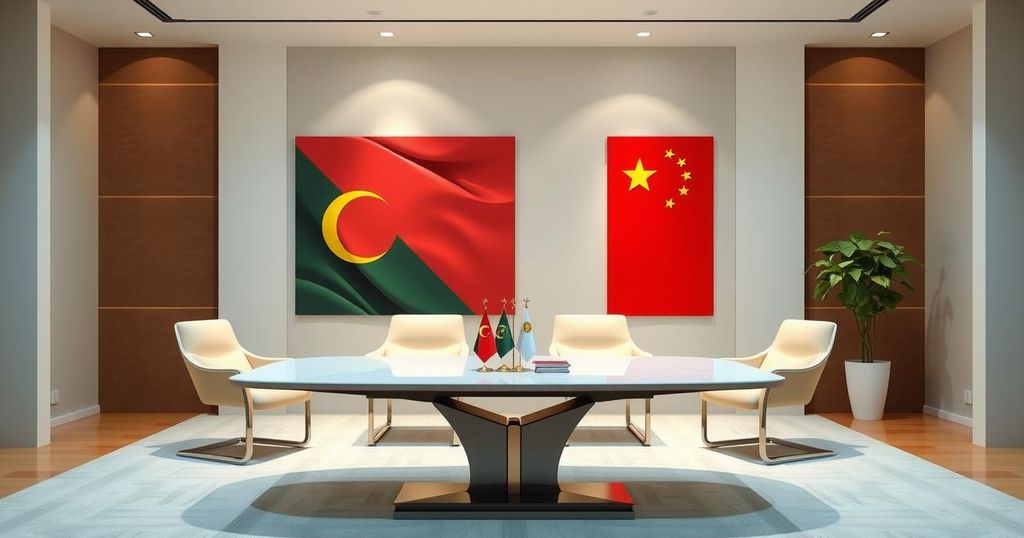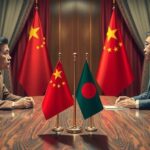Politics
AFP, ASIA, BANGLADESH, BEIJING, BILATERAL COOPERATION, BILATERAL RELATIONS, BILATERAL TRADE, CHINA, DHAKA, ECONOMIC COOPERATION, HAINAN, HASINA, INDIA, INDIA TODAY, LONGJI, MEMORANDUM OF UNDERSTANDING (MOU, MEXICO, MUHAMMAD FOUZUL KABIR KHAN, MUHAMMAD YUNUS, NEW DELHI, NORTH AMERICA, SDG, TRADE, TRIBUNE, YUN, YUNUS
Clara Montgomery
Bangladesh’s Yunus Seeks Strengthened Ties with China Amid Tensions with India
Muhammad Yunus met with Chinese President Xi Jinping in Beijing, aiming to enhance bilateral ties and investment opportunities while navigating strained relations with India. This visit coincides with the 50th anniversary of Bangladesh-China diplomatic relations. Several agreements are anticipated following the discussions, highlighting potential economic and technical cooperation.
During a recent meeting in Beijing, Chinese President Xi Jinping engaged with Muhammad Yunus, the leader of Bangladesh’s interim government. This visit occurs as Bangladesh strategically seeks new allies amidst shifting relations with India. Yunus, on his inaugural four-day trip to China since assuming office in August 2024, aims to bolster bilateral ties and secure foreign investments, coinciding with the 50th anniversary of Bangladesh-China diplomatic relationships.
Yunus’s delegation includes notable figures such as Foreign Affairs Adviser Md Touhid Hossain and Energy Adviser Muhammad Fouzul Kabir Khan. His recent attendance at the Boao Forum for Asia in Hainan served to enhance bilateral engagements. In a recent address, Yunus communicated interest from Longji, a leading Chinese solar panel manufacturer, in establishing a factory in Bangladesh, signaling potential economic cooperation.
The ongoing discussions are expected to address multiple facets of collaboration, including technical assistance, healthcare access, and trade opportunities. Notably, China has expressed a desire to import various Bangladeshi fruits, with exports anticipated to begin soon. Following their discussions, several agreements and Memoranda of Understanding (MoUs) are set to be finalized, encompassing sectors such as human resource development and cultural exchanges.
Yunus assumed leadership after the ouster of former Prime Minister Sheikh Hasina amid a student-led uprising, which has resulted in tensions between India and Bangladesh. As the interim government contemplates requesting Hasina’s extradition, some analysts view Yunus’s visit as a strategic maneuver amid changing geopolitical dynamics with India. Despite these tensions, Indian Prime Minister Narendra Modi reaffirmed India’s commitment to strengthening ties in a letter to Yunus.
The meeting between President Xi Jinping and Muhammad Yunus signifies a pivotal moment in Bangladesh’s foreign relations, particularly with China, as the country navigates its stance amidst strained ties with India. The forthcoming agreements indicate a shift towards deeper economic and cultural collaborations. Yunus’s leadership during this transitional phase highlights the complexities of geopolitics in South Asia and sets the stage for future developments.
Original Source: www.firstpost.com








Post Comment